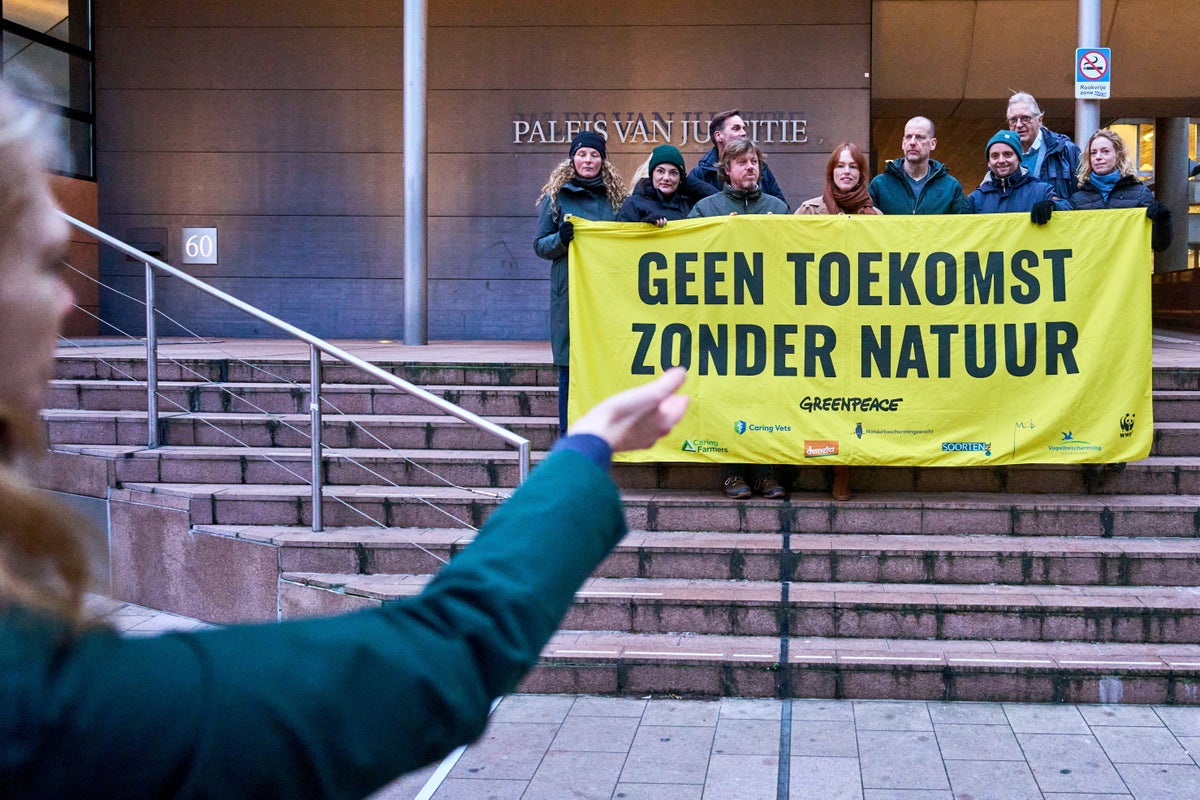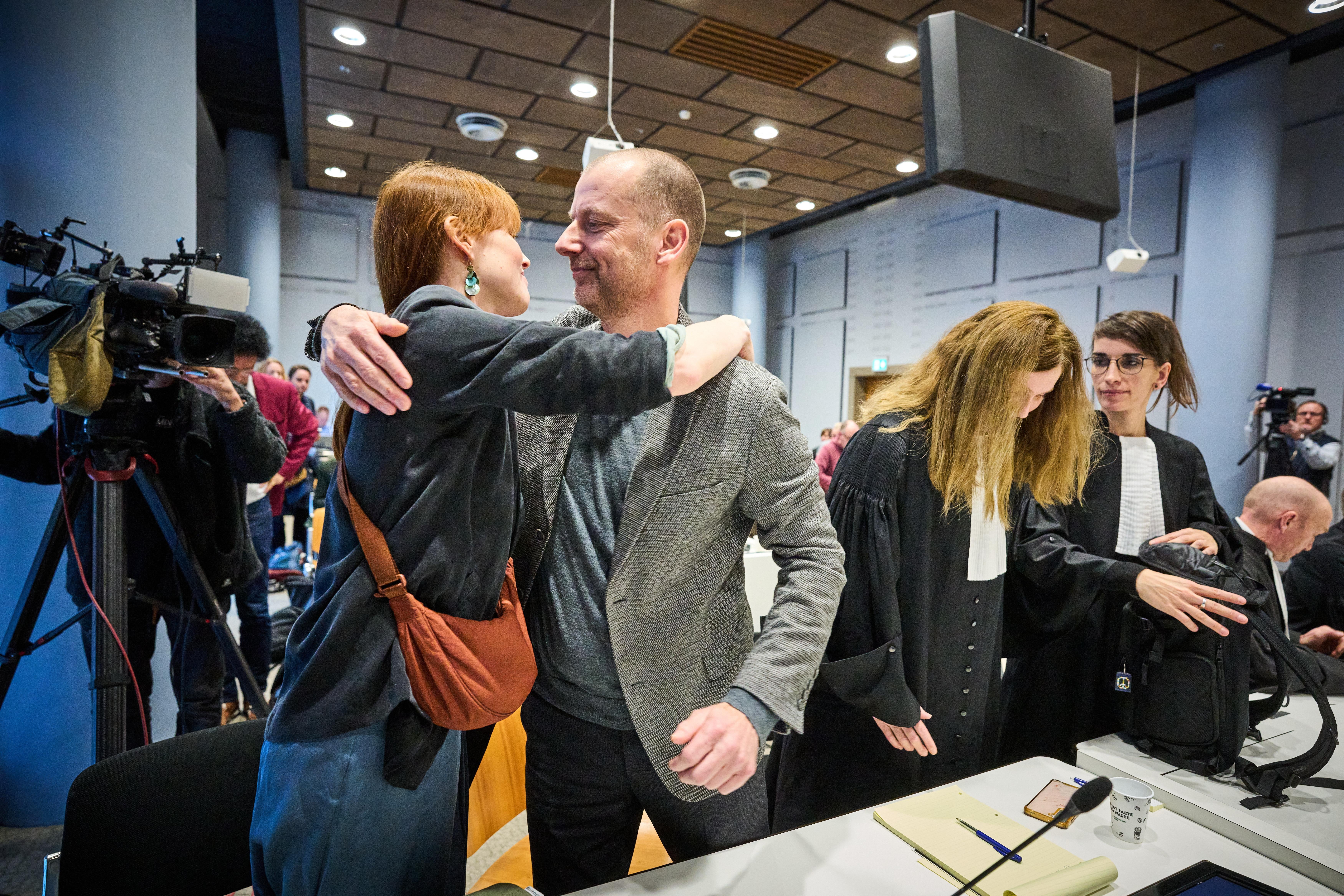
The Dutch government has been ordered to drastically cut nitrogen emissions by 2030 in a move which could impact farmers and construction, following a major court case brought by Greenpeace.
Environmental campaigners argued the government was not doing enough to lower nitrogen oxide emissions caused by intensive farming, fertilisers, traffic, and construction sites.
A court in The Hague ruled the government had failed to comply with European regulations to cut the excessive emissions, which hurt biodiversity and damage the quality of the water, particularly in vulnerable nature reserves which are protected by EU law.

The government, a fragile coalition of opposing parties led by prime minister Dick Schoof, has now been ordered to cut emissions to legally-permitted levels in 50 per cent of all affected nature reserves by 2030. The court ruled the governmentwill be fined €10 million (£8.4 million) if it fails to fulfil its obligation.
Agriculture minister Femke Wiersma, a member of the Farmer–Citizen Movement (BBB) political party, said she is considering an appeal after the disappointing court ruling.
"We take the nitrogen problem very seriously," Ms Wiersma said in a post on X. "But we can’t ask the impossible of people and companies."
The problem is seen as a possible stumbling block for the Schoof government, which holds together far-right leader Geert Wilders’ Freedom Party, the recently founded centrist New Social Contract (NSC), and the liberal People’s Party for Freedom and Democracy (VVD) - home of former prime minister and current Nato secretary-general Mark Rutte.

Previous court rulings by the European Court of Justice in 2018 and the Netherlands’ Council of State in 2019 have found that Dutch policies were failing to address the high nitrogen problem.
Large protests took place following attempts to reduce emissions by buying out livestock farmers, while the courts have routinely blocked major construction projects until the problem is solved.
The previous Dutch government set out targets for nitrogen reduction by up to 70 percent in some areas by 2023 - but the current regime has scrapped many of the policies which sought to reach that goal amid pressure from farmers.
"Measures were already largely insufficient to reach the 2030 goal and there is no improvement in sight," the court said, stating that the government’s lack of action was unlawful.







